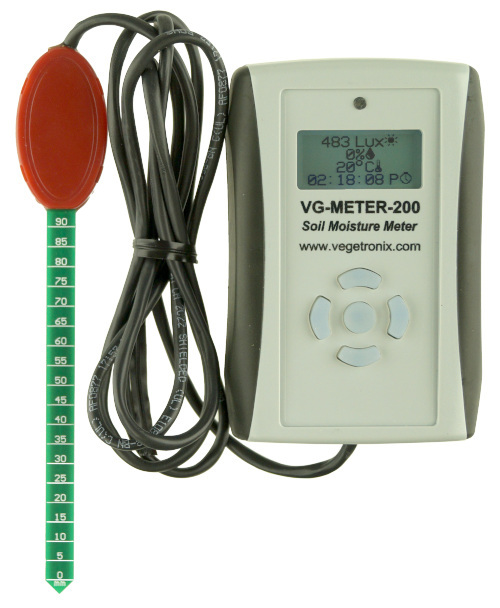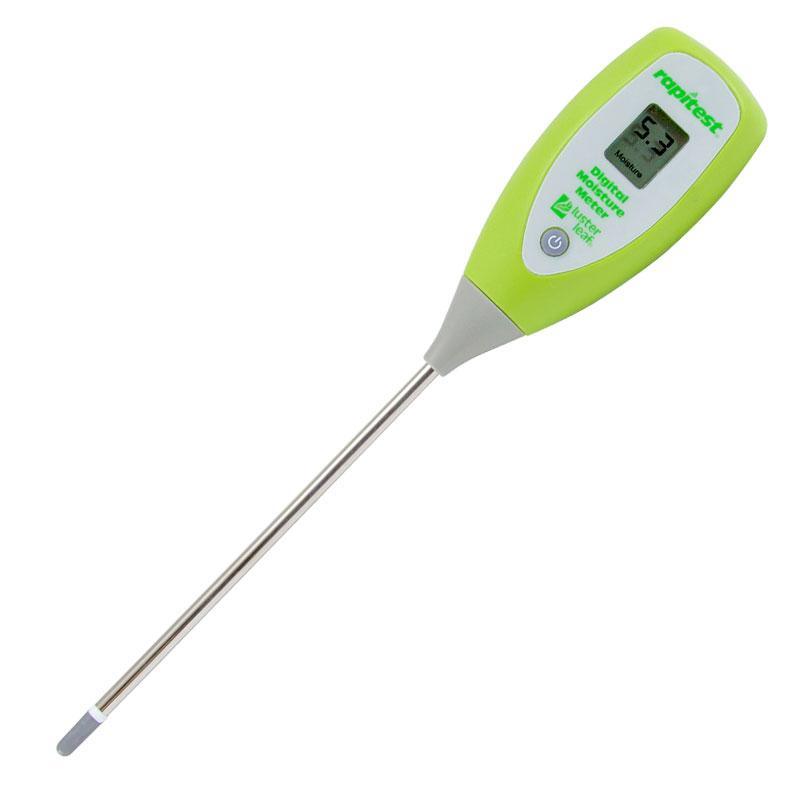The Ultimate Overview to Choosing the Right Moisture Meter for Your Needs
Wiki Article
The Ultimate Overview to Moisture Meters: A Comprehensive Overview and Just How They Can Save You Money
Moisture meters serve as indispensable tools in identifying and keeping track of moisture material in materials, aiding in protecting against costly damages and making sure the quality of items. Recognizing the nuances of different kinds of moisture meters, their applications, and the possible cost-saving advantages they supply can be a game-changer for professionals and businesses alike.Kinds Of Wetness Meters
One common type is the pin-type moisture meter, which measures the electric resistance in between 2 pins inserted right into a material. Pinless dampness meters, on the various other hand, usage electromagnetic sensing unit plates to check a bigger area without causing damages to the product's surface.
Infrared moisture meters gauge the thermal residential or commercial properties of a product to identify its dampness web content non-invasively, making them beneficial for applications where pin or pinless meters may not be suitable. Understanding the various types of dampness meters readily available can help markets choose the most proper device for their details wetness dimension needs.

Benefits of Utilizing Wetness Meters
Dampness meters offer invaluable advantages in accurately examining and checking wetness levels in diverse materials and atmospheres. One of the primary benefits of utilizing moisture meters is the avoidance of possible damage caused by excess dampness.
Furthermore, making use of wetness meters can bring about increased power efficiency. By identifying areas with high moisture degrees, such as leakages or bad insulation, adjustments can be made to improve energy preservation and decrease utility costs. In farming settings, dampness meters play an essential function in maximizing plant yields by enabling farmers to check soil dampness degrees and make educated irrigation choices. Generally, the advantages of using dampness meters cover across numerous markets, providing cost-effective options and advertising far better top quality control techniques.
Exactly How to Pick the Right Moisture Meter
Choosing the ideal moisture meter includes considering crucial variables such as material compatibility, measurement variety, and calibration precision. When picking a moisture meter, it's necessary to ensure that the meter appropriates for the certain product you will certainly be screening. Different materials have varying electrical residential or commercial properties that can impact wetness analyses, so picking a meter made for your product is essential for accurate results. Furthermore, take into consideration the dimension array of the dampness meter. Ensure that the meter can spot wetness degrees within the variety needed for your applications. Calibration precision is an additional crucial aspect to remember. Choose for a wetness meter with trusted calibration to make certain regular and exact readings. Some meters may call for routine calibration adjustments, so comprehending the calibration process is essential. By meticulously reviewing these variables, you can select a wetness meter that satisfies your needs and provides exact wetness measurements for your projects.Appropriate Techniques for Dampness Meter Usage

Cost Cost Savings With Wetness Meter Applications
How can the tactical utilization of moisture meters lead to substantial price financial savings across numerous markets? In the agriculture sector, wetness meters aid in determining the ideal time for harvesting crops, preventing over-drying or excess wetness that can impact the final item's quality.
In a similar way, in building, moisture meters aid protect against expensive problems by identifying wetness degrees in structure materials, such as timber or concrete, which can result in structural problems if not addressed promptly. By determining issue areas early on, professionals can take restorative measures to stay clear of comprehensive repair services or substitutes, ultimately conserving time and money.
Moreover, in the food handling sector, moisture meters are necessary for keeping track of product high quality and making certain compliance with safety policies. By properly gauging dampness content in food items, manufacturers can avoid perishing, keep quality, and reduce waste, resulting in significant expense savings. Generally, the critical application of dampness meters is a valuable investment that can result in considerable expense reductions and enhanced effectiveness across different sectors.
Conclusion
To conclude, dampness meters are valuable tools for determining and finding dampness degrees in different materials. By utilizing the best click over here dampness meter and adhering to correct techniques, users can effectively stop costly damages brought on by excess moisture. Buying a top quality moisture meter can cause considerable cost financial savings More Bonuses in the lengthy run by determining potential concerns early and allowing prompt removal. Eventually, moisture meters are essential tools for preserving the honesty and durability of structures and products.Moisture meters serve as indispensable tools in spotting and monitoring moisture material in products, aiding in stopping pricey damages and making sure the quality of products. Infrared wetness meters gauge the thermal properties of a material to establish its dampness content non-invasively, making them helpful for applications where pin or pinless meters may not be suitable.Wetness meters use invaluable benefits in properly assessing and checking wetness levels in diverse materials and atmospheres. In farming setups, dampness meters play an essential function in enhancing plant returns by making it possible for farmers to check dirt moisture levels and make informed irrigation decisions.In conclusion, moisture meters are important tools for discovering and gauging dampness degrees in numerous products.
Report this wiki page